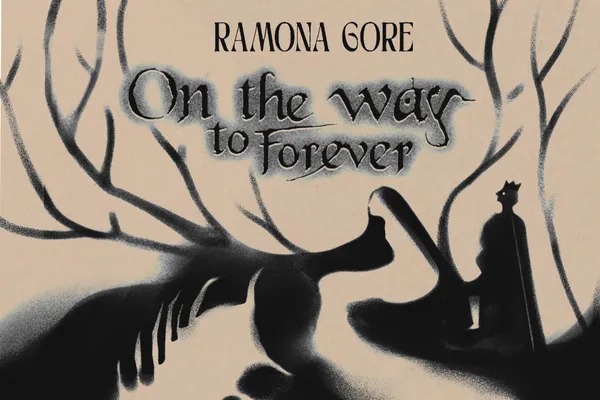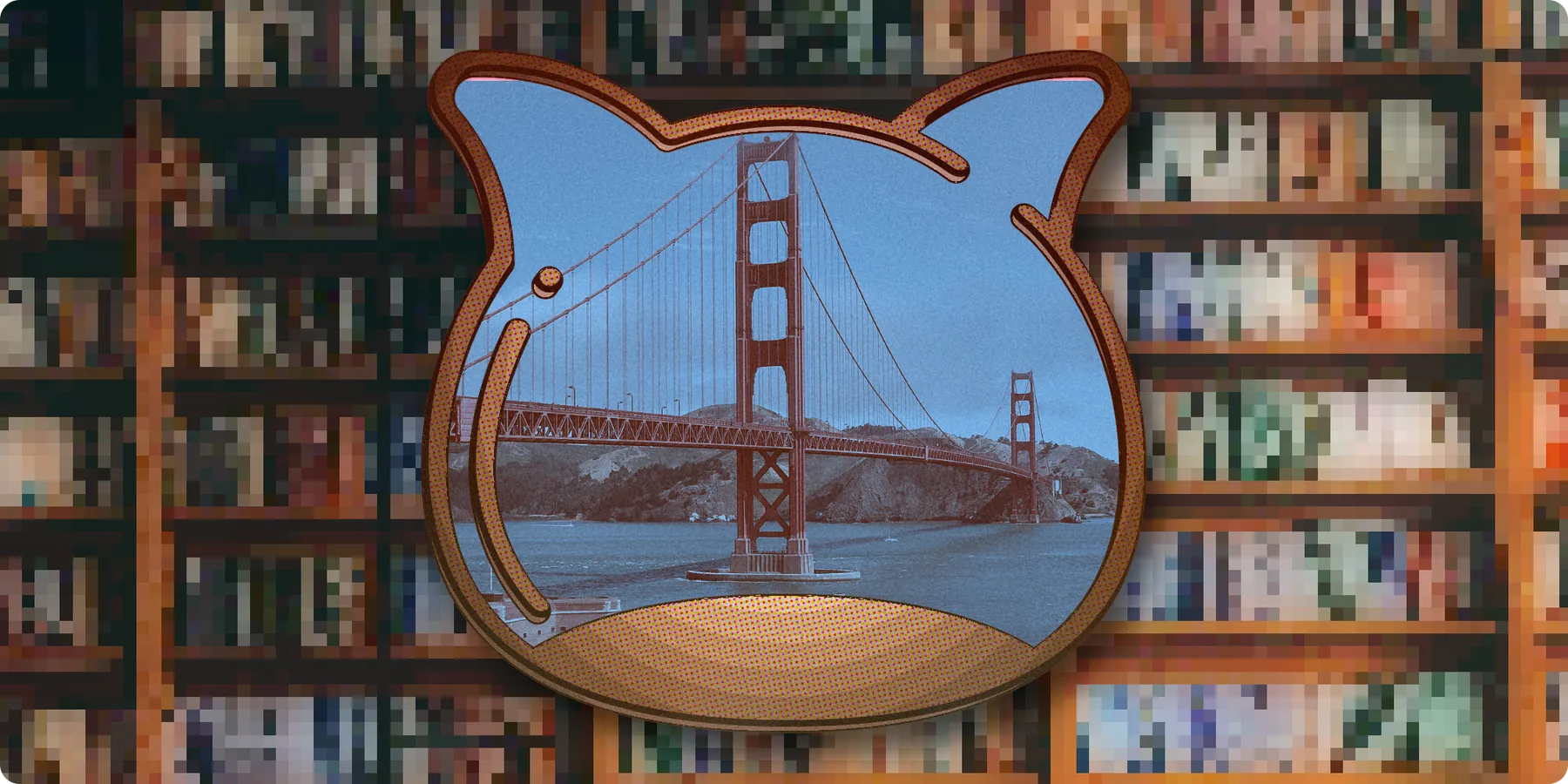
🪱 On the way to forever
by Ramona Gore
a desire to move west


Marie—
When they announced the discovery of T. empirii last year, one of the scientists claimed that it was the most destructive parasite in the history of the world despite having only one symptom. This protozoan creature somehow crosses the blood-brain barrier—don’t ask me how, you know I’m an immigration historian, not a scientist—and asserts its wayward will upon its host. They named it after that famous line of George Berkeley’s: “Westward the course of empire takes its way.” And that is precisely what the parasitic empirii does: urges its host to go west. The logic, if a protozoan has logic, is likely simple: to spread further and find more hosts.
You never were interested in my genealogical studies, but humor me for a moment. My ancestor Edith Squire was, by my research, born into a perfectly respectable family. She may have even been of slightly higher standing than her husband, Henry Adams, who would come to be known as the “Founder of New England.” Surely even you recognize his family name, at least. Based on recently recovered letters, it was Edith who pressed for the family to emigrate to New England in 1638. She seems to have held very little interest in the religious aspects of some new Promised Land, instead seemingly driven by a desire—a perceived need—to move westward. I believe she was infected.
How many others were, too? How many tens of millions of people around the world have died as a result? Without T. empirii, would the world have faced a gentler kind of exploration, one born of curiosity rather than this desperate, parasitic need? Oh, don’t think I’m trying to absolve what was done at its urging. I hear your arguments as clearly as if you were here with me, Marie. You always accused me of making excuses for myself. You always did. Even now, I hear you calling me self-interested, self-important, self-centered, self-involved, selfish. But never mind; I’m not writing to stir up old arguments, and I only mention that to acknowledge I still know your mind. Have you ever considered that things might have been different if you had been kinder, more patient?
What I mean to say, Marie, is that I knew, long before any of us had any idea about this parasite, the seemingly irrelevant detail that Cape Mendocino on the Lost Coast is the westernmost piece of land in California. I had looked it up so long ago that it became like a piece of polished seaglass in my mind, tumbled around in my thoughts, over and over. Even when T. empirii was announced, I failed to make the connection. Only when I was diagnosed four months ago did I realize that perhaps my fascination with this desolate piece of land was not my own, but the parasite’s.
Here is another fact I’ve known for many years but never told you because you would have claimed it was irrelevant and uninteresting. The westernmost point in the contiguous US is not, in fact, in California. You can find it in Washington, near Ozette.
Why, then, the draw to the Lost Coast? I believe it is because California embodies the American concept of the ultimate West in a way Washington does not. Think of the Gold Rush. Think of Hollywood. Metaphorically, California isn’t a place where people are from; it’s a place where people go, the ultimate terminus. The westernmost point of the Western world. And so, in some fusion between the parasite’s need and the host’s mind, California becomes the destination.
I have stood on the Golden Gate Bridge, leaning against its railing, staring into the water below. There is some irony, I think, in visiting the symbol of the ultimate West and finding the pedestrian walkway is on the east side, urging you to look back across the polluted bay toward civilization instead of out, always out, to where the wild and unknowable sea beckons.
I have felt like a crashing wave, full of eonian, aching desire to go further at all costs, even when that means flinging itself upon the unforgiving rocky shoreline.
You may have heard that I have been tangentially involved in the scientific research surrounding T. empirii due to my own historical research around westward expansion and migration. When the medical research center in San Francisco asked for volunteers for a trial treatment, I signed up. I chose not to tell you, not because you don’t deserve to know, but because, after all these years, I doubted you would wish to hear from me. Besides, they assured me it would be entirely safe. Their treatment affects only the T. empirii parasite, eradicating it from its host.
My appointment is scheduled for tomorrow.
I write to you now from the airport as I await my flight far, far from California. You’ll doubtless believe this is the parasite’s doing, but you’re wrong. I could very easily stay if I wished, and undergo treatment, and be cured of this, because my mind is my own, not the parasite’s—but who would I be without it? How much has this parasite shaped my life? Would I have chosen to research immigration history without its influence? Would I still have moved out West to California and met you? Without it, who would I be?
What I mean to say, Marie, is this relationship—mine with T. empirii, that is—has always been symbiotic, not parasitic. Without T. empirii, I would not be who I am. While I recognize the harm it has historically caused, I cannot sacrifice myself. You would see that as a metaphor for the choice Edith Squire (not that you would remember her name) would have made if it had been available to her. Perhaps not pursuing treatment makes me as selfish as you always claimed. Perhaps you’ll claim it’s proof the parasite never mattered, and that the actions would have been the same without it. Perhaps you’ll call it just another excuse to hide behind. Perhaps you would say my choice to leave proves that any hope of absolution or forgiveness would be undeserved. Perhaps you’re right—you usually were.
If you ever change your mind and wish to find me, follow the setting sun.
With affection, always, despite all of it,
Henry